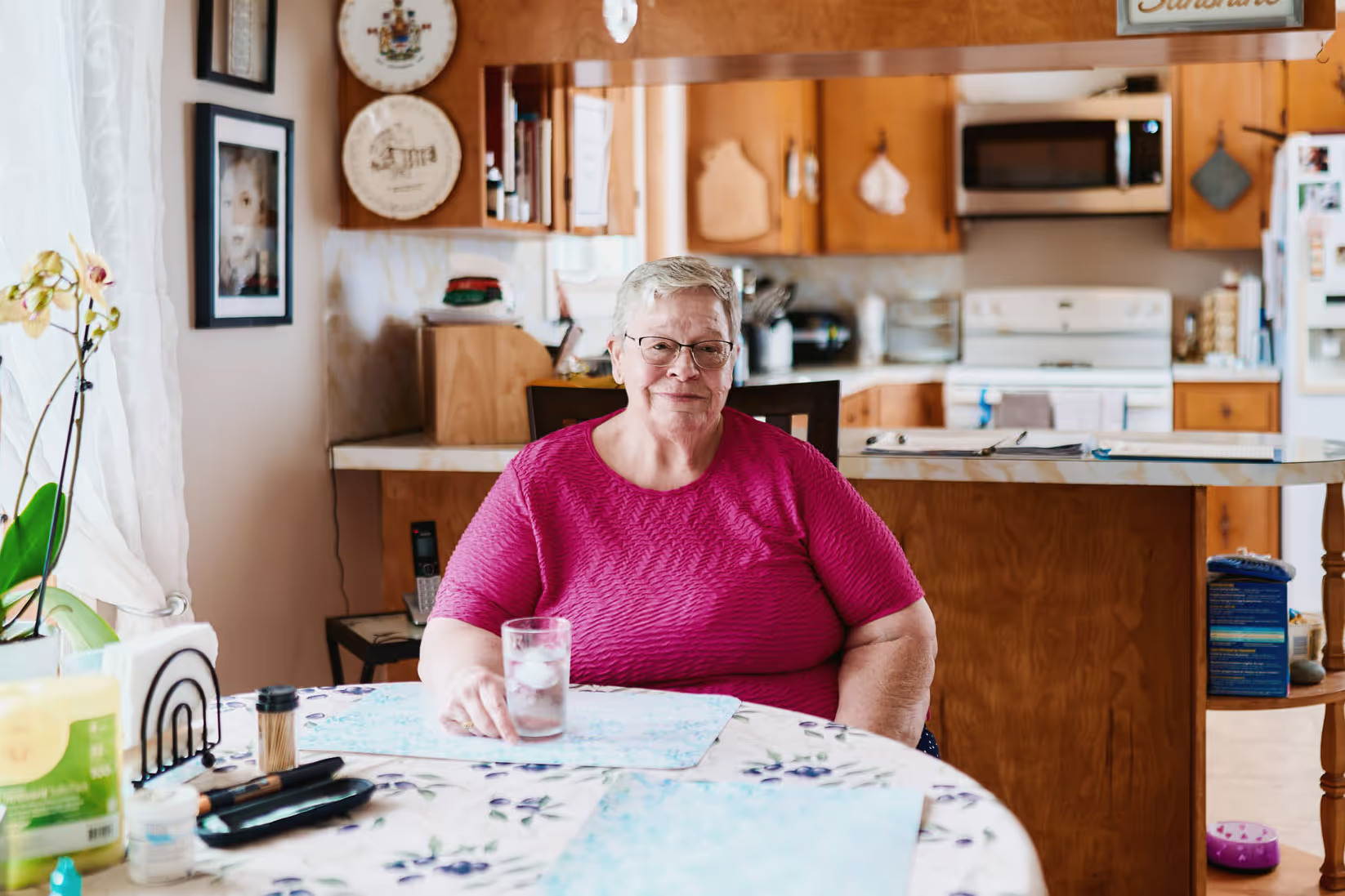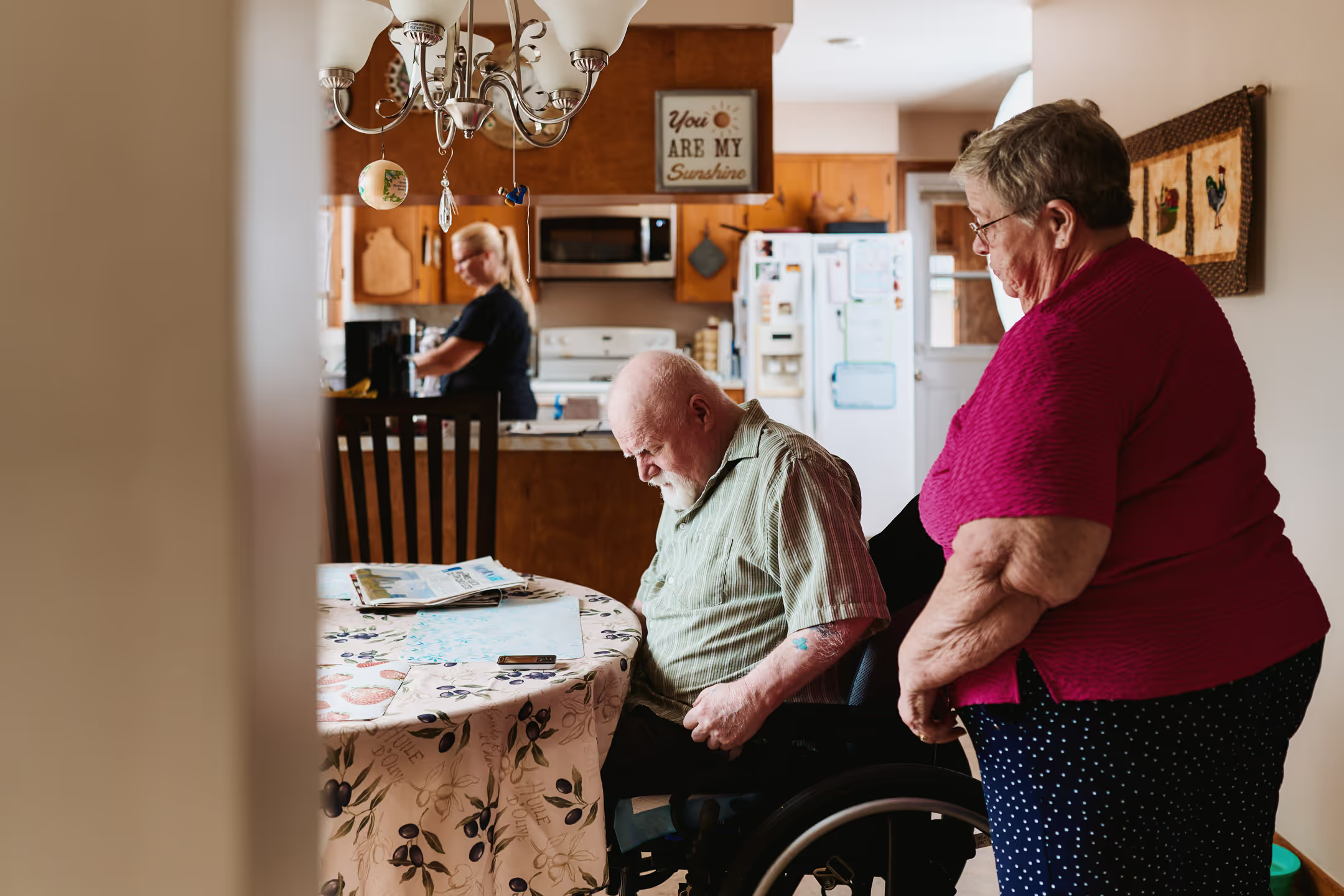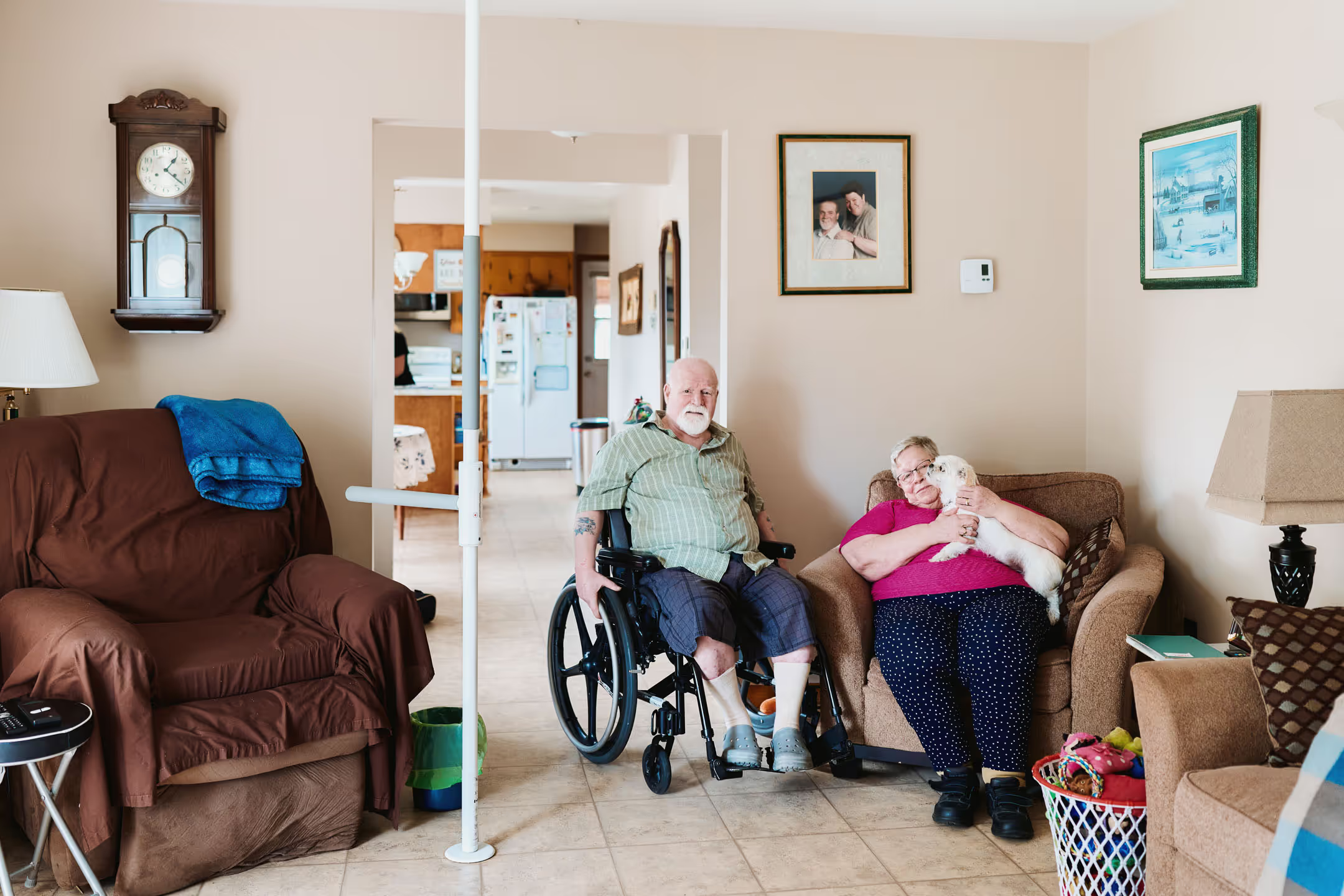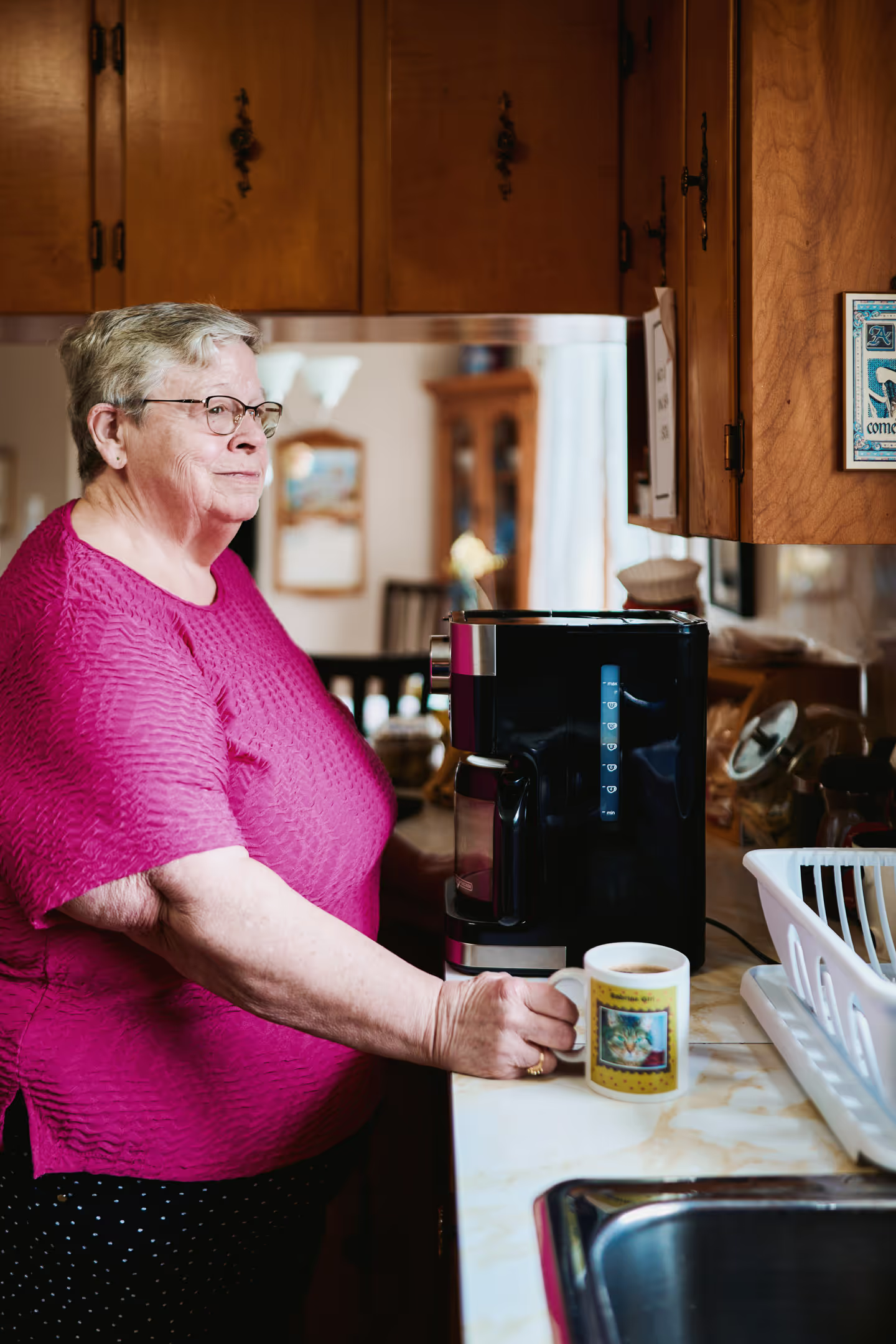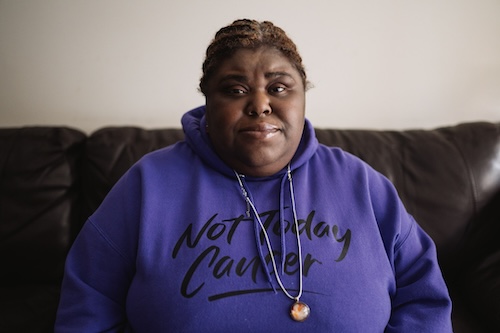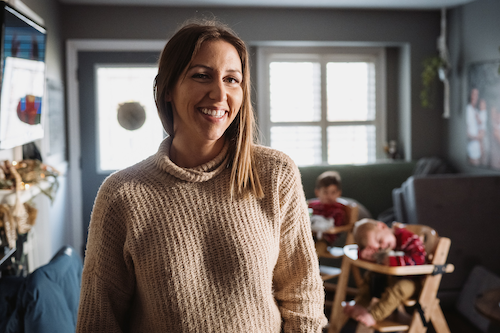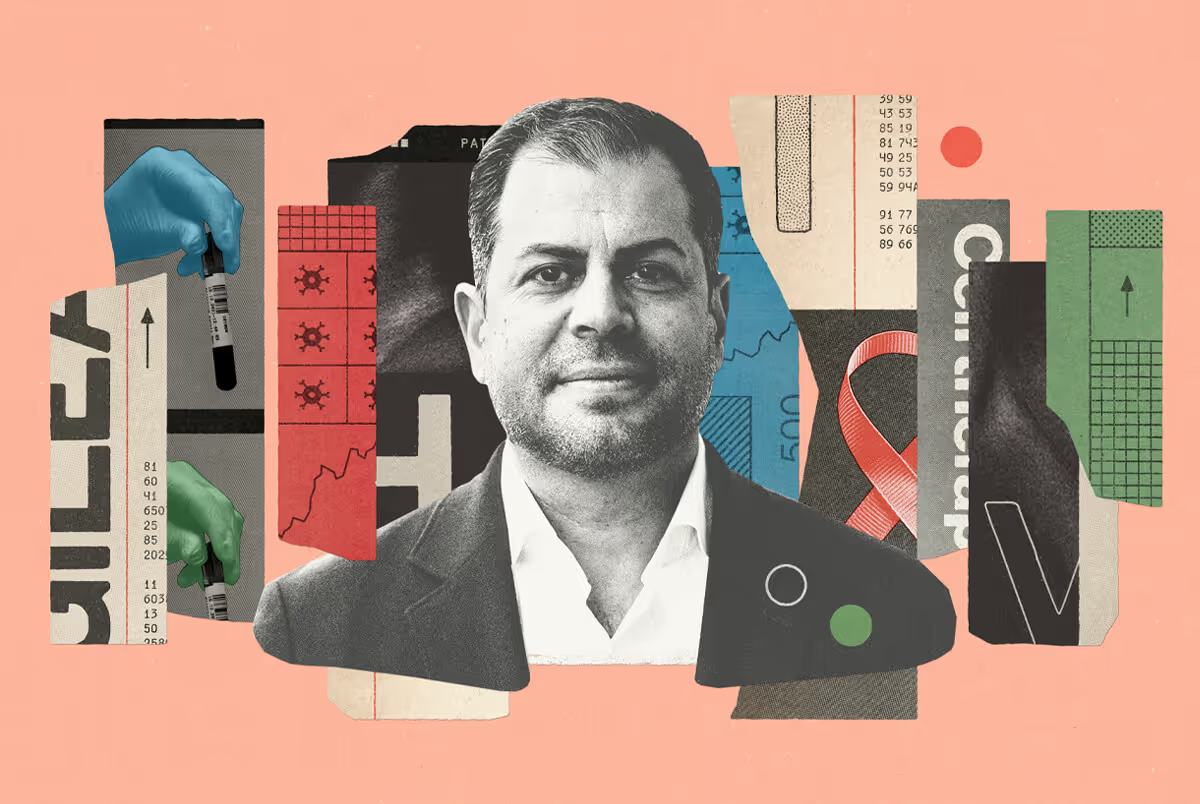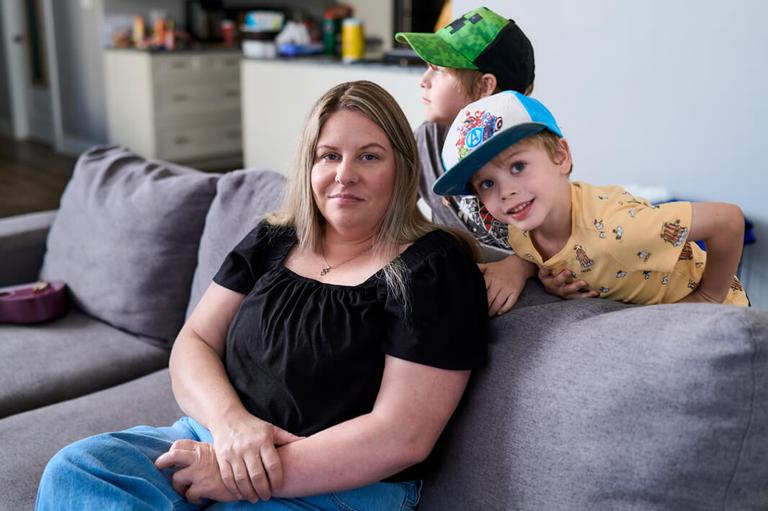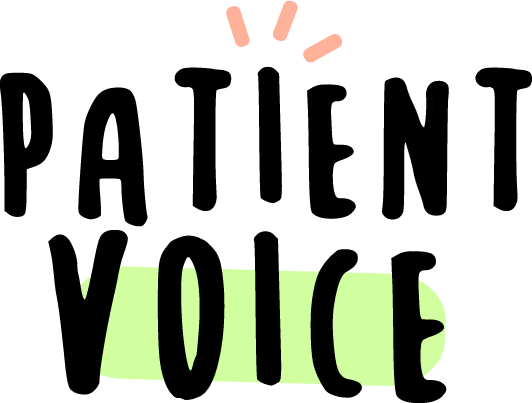“I’ve been living with rheumatoid arthritis for 30 years, and it never stops surprising me. I was first diagnosed just before my husband Jerry and I got married. We had recently bought our first house in Hamilton and we were doing a lot of the renovations ourselves. One morning, I woke up to find my hands and feet so swollen that I couldn’t even put my shoes on. At first, I chalked it up to working too hard on the house. But it kept happening, morning after morning.
When I finally saw my doctor, he told me I was just going to have to learn to live with it. That was the mentality back in the ‘90s when it came to chronic illnesses. Essentially, too bad — figure it out.
But I didn’t settle for that. After pushing for more answers, I was finally properly diagnosed and connected with a research rheumatologist. He found a medication that actually worked for me — at least for a while.
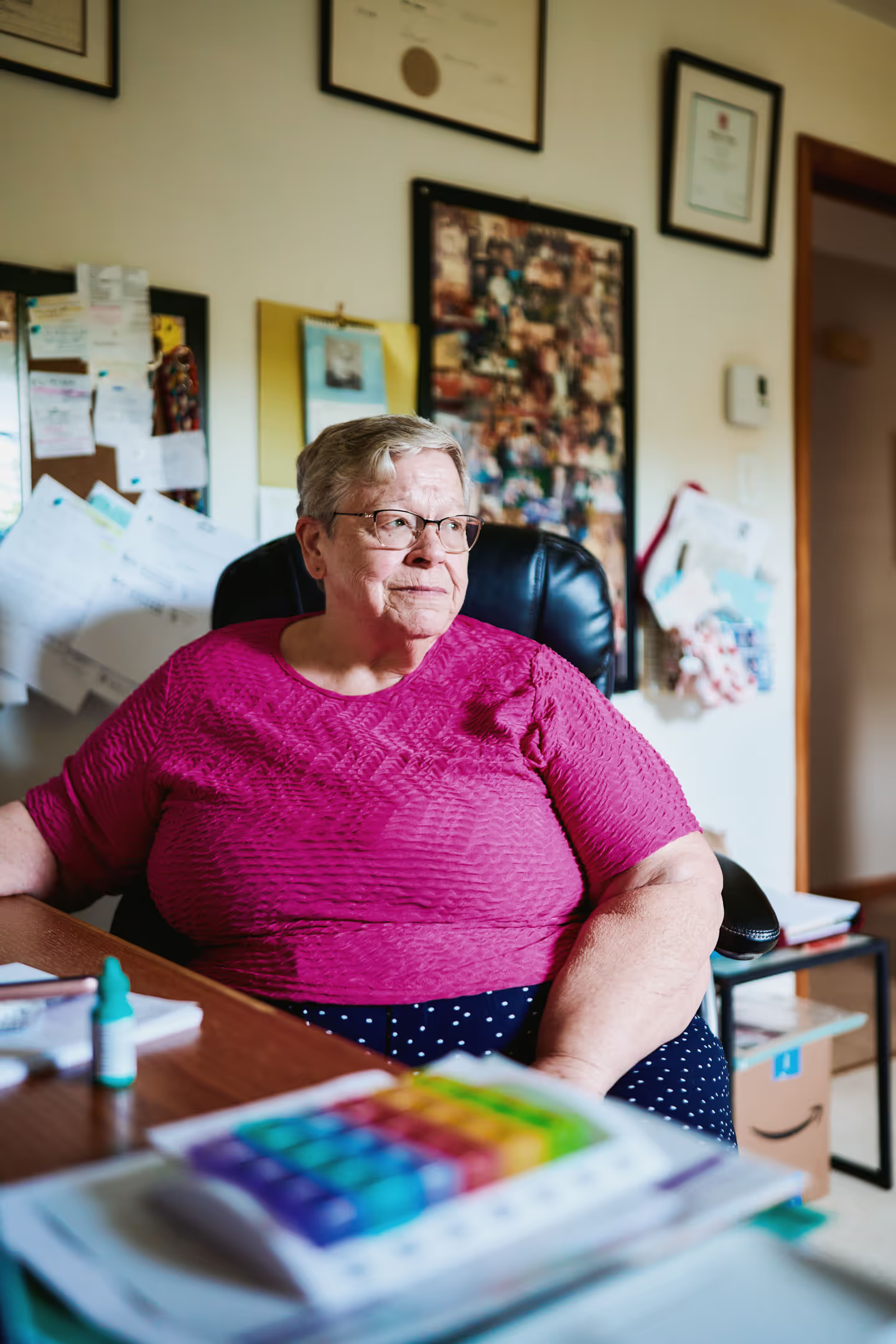
At the time, I had a demanding job in the agricultural chemicals sector, which required regular travel. I was pushing myself hard, often ignoring my body’s limits. Eventually, the fatigue caught up with me. One day, I started having trouble breathing and discovered I’d developed rheumatoid nodules on my lungs. I hadn’t even realized that could happen. People often think that arthritis only affects the joints, but it’s an immunological disorder that can impact the whole body. In my case, it certainly has.
“It always seemed like one thing after another.”
Throughout it all, Jerry and I have done our best to live our lives to the fullest. We moved to Marmora, joined a dog club, and got involved in Snofest, Canada’s longest-running dog sled race. But the medical complications and surgeries kept piling up. I’ve had tendon replacements on both of my thumbs, joint replacements in both of my knees, and now I’m waiting on a shoulder replacement. Jerry, too, has faced his own challenges. He’s been diabetic for as long as I’ve known him, and in early 2020, he had a stroke that left him in a wheelchair. It always seemed like one thing after another.
Then came the pandemic.
We had moved again — this time to a remote area in New Brunswick with our two dogs. Both of us were immunocompromised, and Jerry was still recovering from his stroke. We were very much dependent on homecare. It takes a village to run our home. But, due to the lockdown protocols, the amount of support we could get decreased dramatically.
